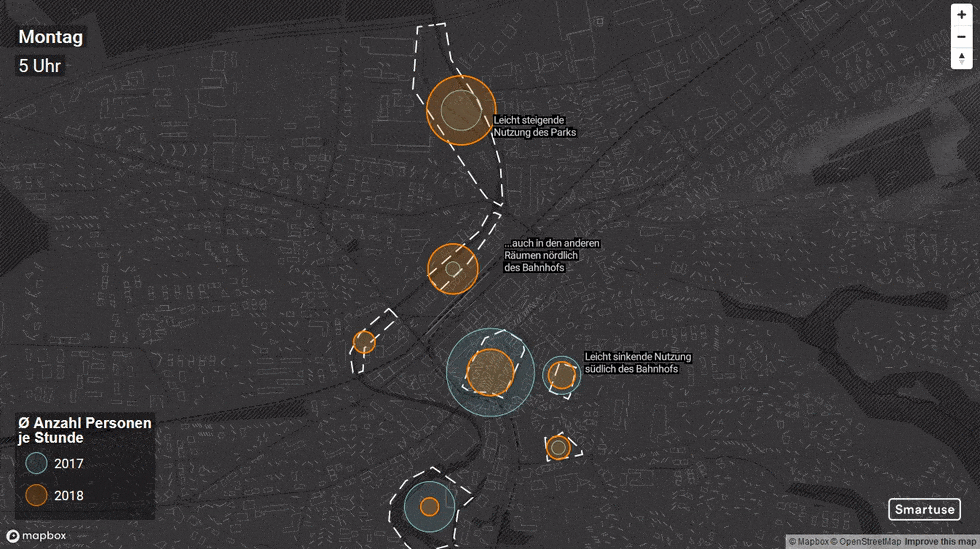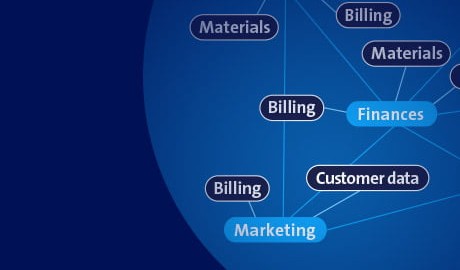Smartuse
Smart City: How mobility data, space and architecture interact
How can public space be used more efficiently? cividi provides the answer with its platform Smartuse, which is based on the combination and analysis of different, anonymized data. Swisscom supports as a partner.
Text: Martina Longo, Images: Unsplash, Smartuse,
Public space in change
Many questions concerning the optimal use of space are strongly linked to social and socio-political issues. How and why the ever-scarcer public space is being used is a reflection of broader changes, such as increasing technologisation, globalisation, and more flexible forms of work and life. Political guidelines, such as internal compaction and dense construction, are also central in Switzerland: existing building zones must be used more densely in order to minimise land consumption and the associated urban sprawl. Moreover, the design of public space is no longer exclusively in the hands of planners, authorities or politicians, but is increasingly influenced by participatory projects involving the population. Awareness of the immediate environment, its function and development is increasing and users are demanding co-determination. But what criteria should be used to design public space when so many factors play a role? Who should determine and evaluate the factors? And who then evaluates the success of projects?
“Smart” data provide insights
The design of public space and infrastructure is still mostly a matter of trial and error. In many cases, great projects are created, but also often oversized street spaces, poorly functioning town centres or unused squares are the result. Mistakes are usually not analysed. Planning is not yet evidence-based. In order to prevent negative spatial developments and to make them more efficient, Smartuse uses anonymised data sets from various sources, sometimes also from Swisscom’s “Mobility Insights” platform. Markus Schaefer, co-founder of Smartuse, explains the principle behind it: “Just like a doctor who uses an imaging procedure to see where he has to operate, we use data to gain important insights and see where optimizations are possible in order to make better use of space and make it more meaningful”.

Time-dependent use using the example of public space in Frauenfeld (in German)
From pilot project to “Gemeindescan”
How do people behave between places of residence, work and leisure in the Zurich area? How often and intensively are certain streets used? Why are certain places not used at all or only used a little? Smartuse emerged from a pilot project of the Zurich Metropolitan Conference that focused on the analysis of such fundamental questions. Smartuse has further developed the resulting findings in the “Gemeindescan”. “With the “Gemeindescan”, actors receive a user-friendly tool for spatial development, new insights and concrete tips that they can take into account when planning and implementing their own measures,” explains Markus Schaefer. The “Gemeindescan” is constantly being further developed, further tools and products from cividi are planned. cividi is made possible through the commitment of Migros, the development fund of the Migros Group.
More on the topic



